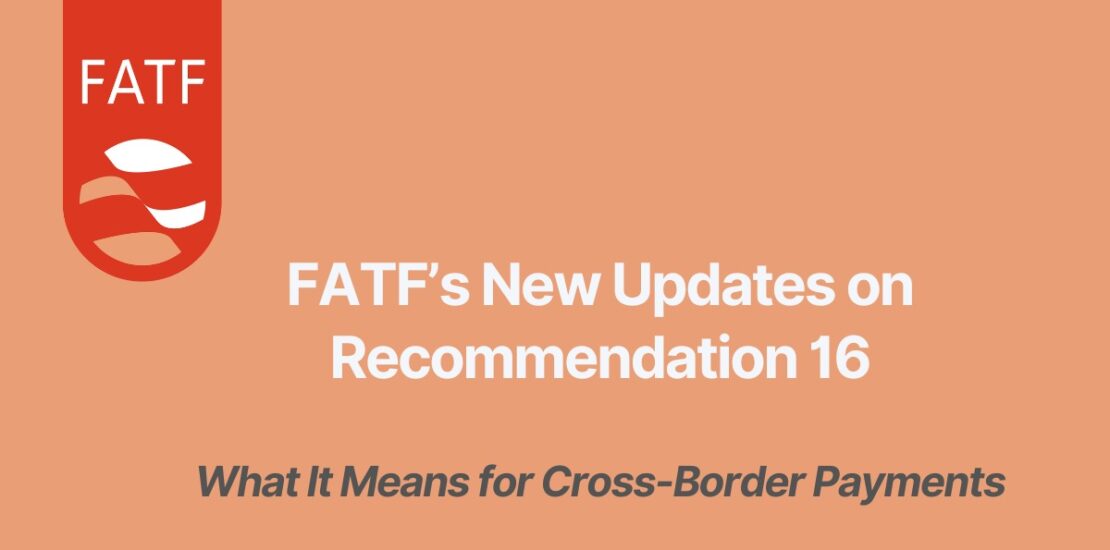- July 3, 2025
- Posted by: Cinque Technologies
- Category: English Press, Press Releases

The global financial landscape is undergoing a major shift as the Financial Action Task Force (FATF) announces significant revisions to Recommendation 16, also known as the ‘Travel Rule’ in the context of virtual assets. a critical component of its AML compliance framework. These updates, agreed upon during the FATF’s June 2025 Plenary, mark a pivotal step in making cross-border payments more secure, transparent, and resilient against financial crime.
Cross-border payments have become increasingly complex, with a wider variety of players involved, from traditional banks to fintechs and digital payment systems. However, this innovation has also introduced new vulnerabilities. Money laundering and financial frauds are now some of the fastest-growing global threats, particularly in cross-border transfers. The revised Recommendation 16 aims to tackle this by increasing transparency in international payments and standardizing the flow of information across all links in the payment chain.
Key Changes and Their Implications
Technology-Driven AML Compliance and Fraud Prevention
The FATF is now requiring the use of tools that protect against fraud and error, such as recipient/user verification technology. These tools are designed to ensure the money is going to the intended party, reducing the risks of misdirected payments and fraudulent redirections.
Standardized Data Requirements
Going forward, all peer-to-peer cross-border payments above USD/EUR 1,000 must include the sender’s full name, address, and date of birth. This may seem simple, but this uniformity dramatically improves the efficiency of sanctions screening, risk assessment, and ongoing transaction monitoring, enabling compliance teams to focus on meaningful alerts rather than chasing incomplete data.
Clear Responsibilities Within the Payment Chain
One of the key challenges in cross-border transactions is inconsistent data handling. The updated standard clearly defines which institution is responsible for including required information in the payment message, starting from the very first financial institution that receives an instruction from the customer. This clarity will help investigators trace suspicious transactions more efficiently, enhancing the effectiveness of AML compliance systems across the board.
Clarifications on Card Transactions
Card-based payments used to purchase goods or services will continue to be exempt from full R.16 obligations. However, the scope of what qualifies as a “purchase” has now been defined more precisely, helping prevent misuse and uncertainty in card-based transfers.
Aligning Cross-Border Payment Process with Global Financial and Compliance Goals
These revisions support the G20 roadmap to make cross-border payments faster, cheaper, more transparent, and more inclusive. With input from over 300 stakeholders across public and private sectors, the FATF’s update reflects a collaborative effort to modernize the regulatory framework in line with real-world needs.
Now more than ever, financial institutions must reassess how their AML compliance systems align with evolving FATF standards. At Cinque Technologies, our mission is to support a secure financial ecosystem by continuously improving our solutions in response to regulatory changes. Whether you are a remittance provider, exchange house, or financial institution navigating AML compliance journey, Cinque’s innovative solutions help you stay ahead by enhancing regulatory compliance and operational ease.
For any queries or demo please reach out to our team at:
[email protected]
